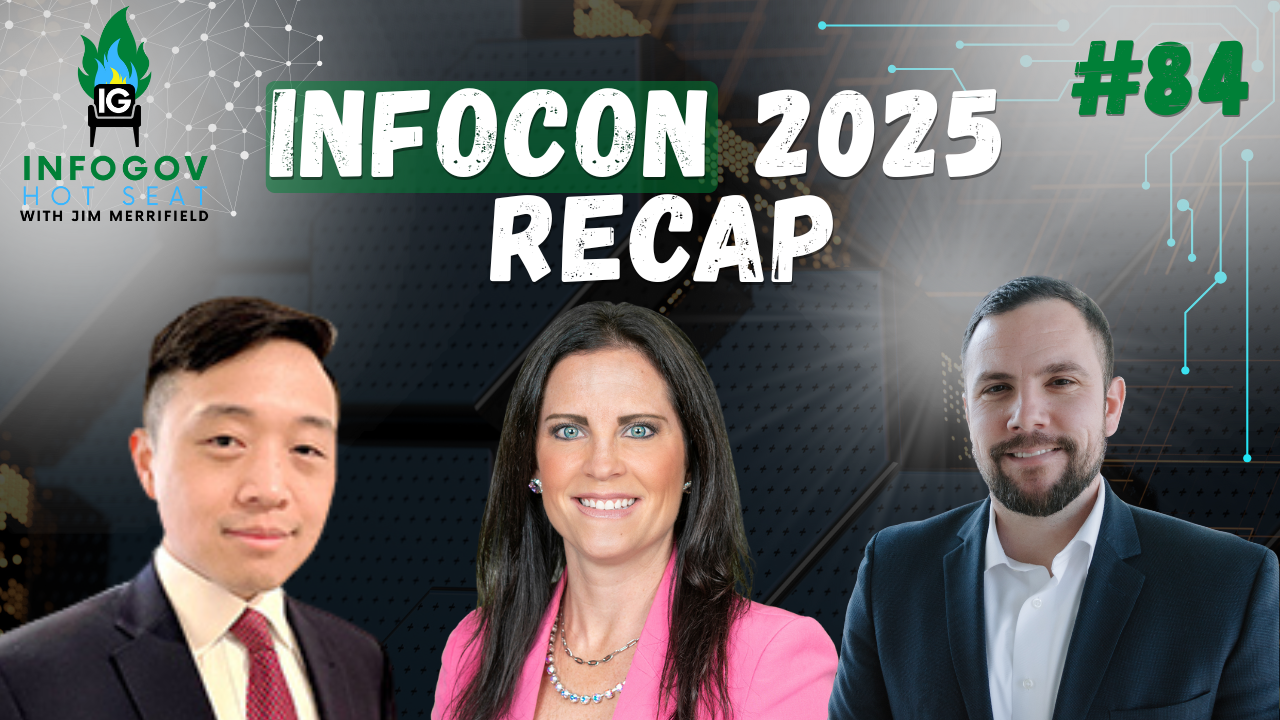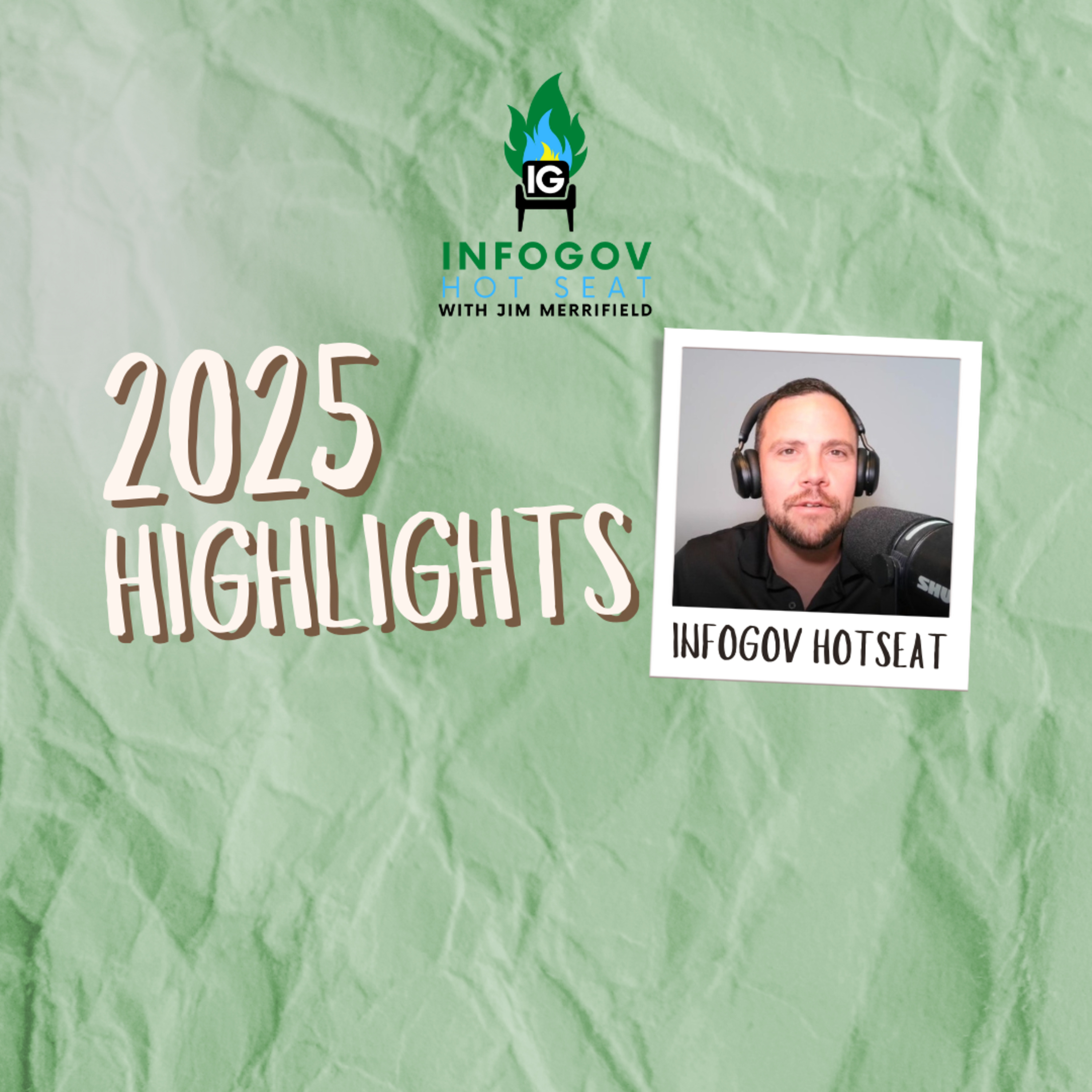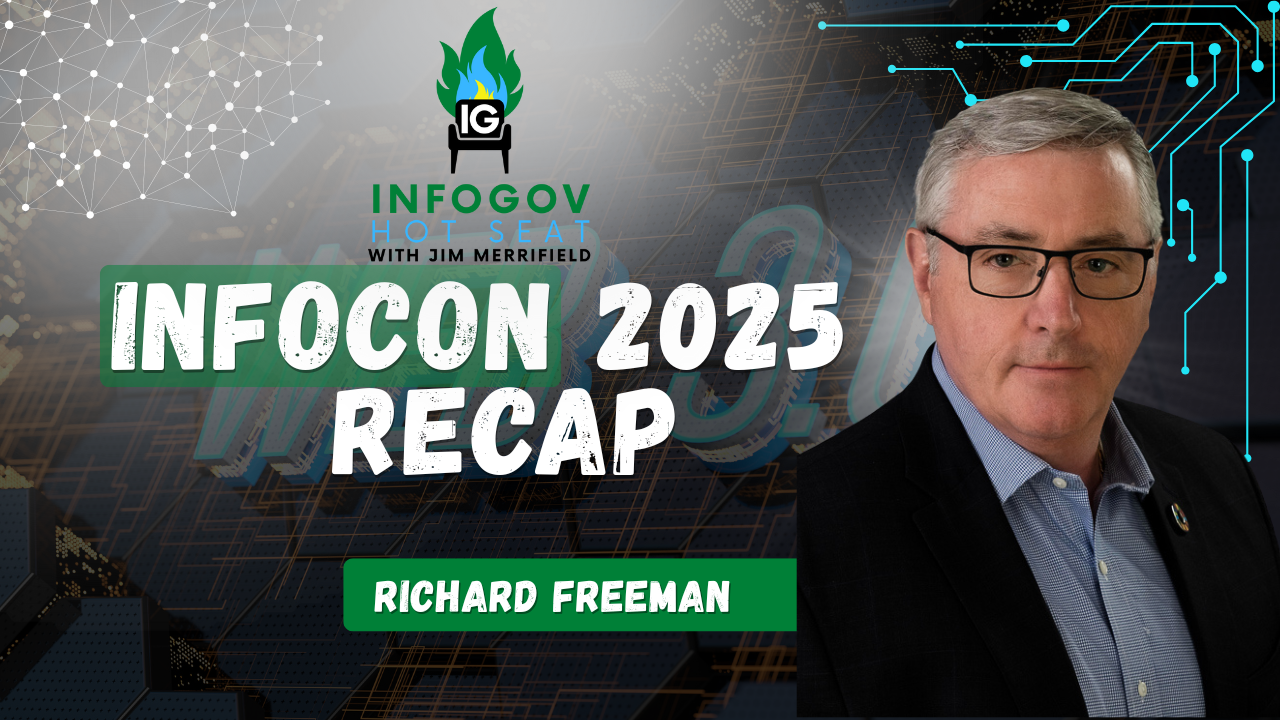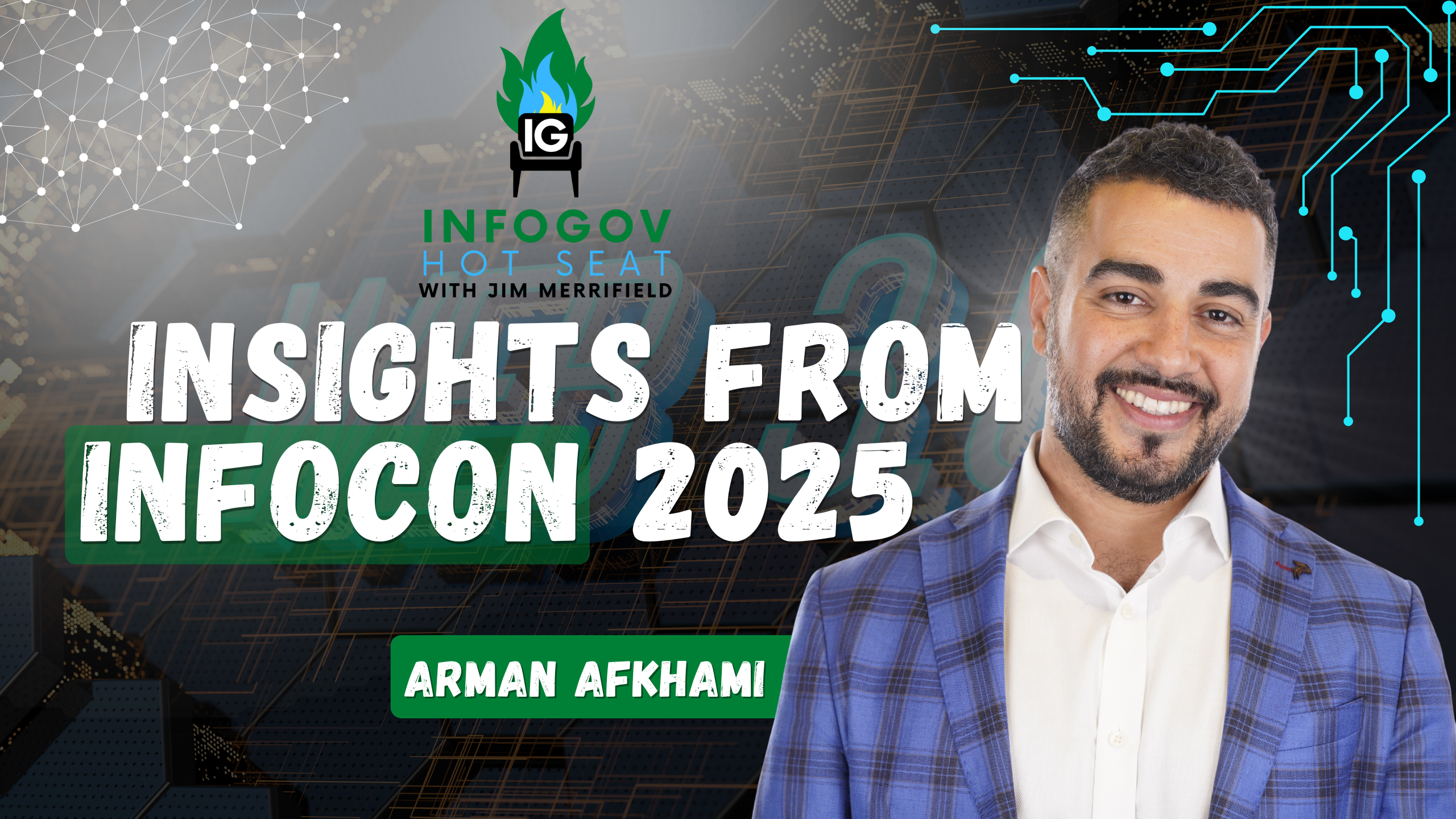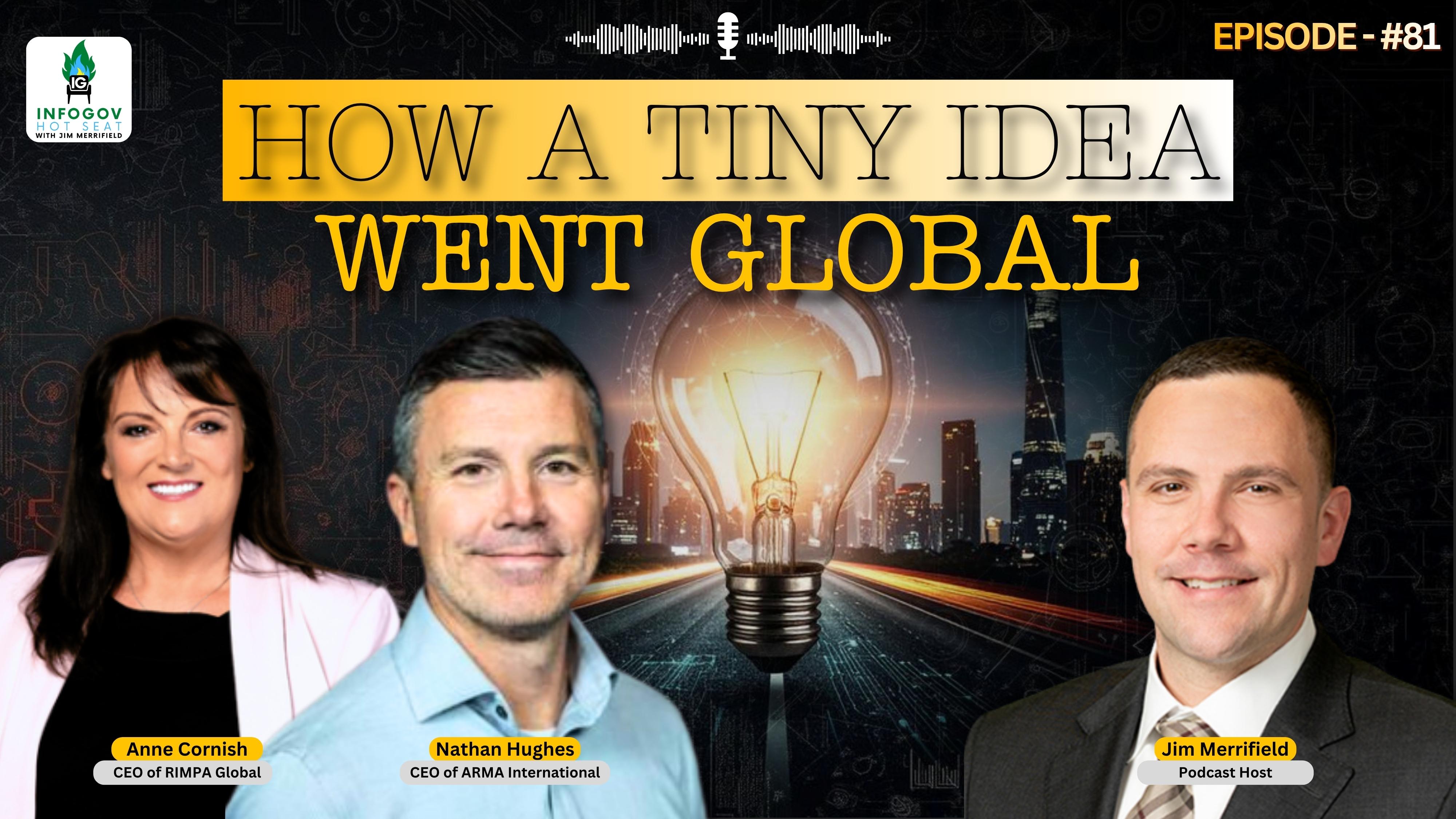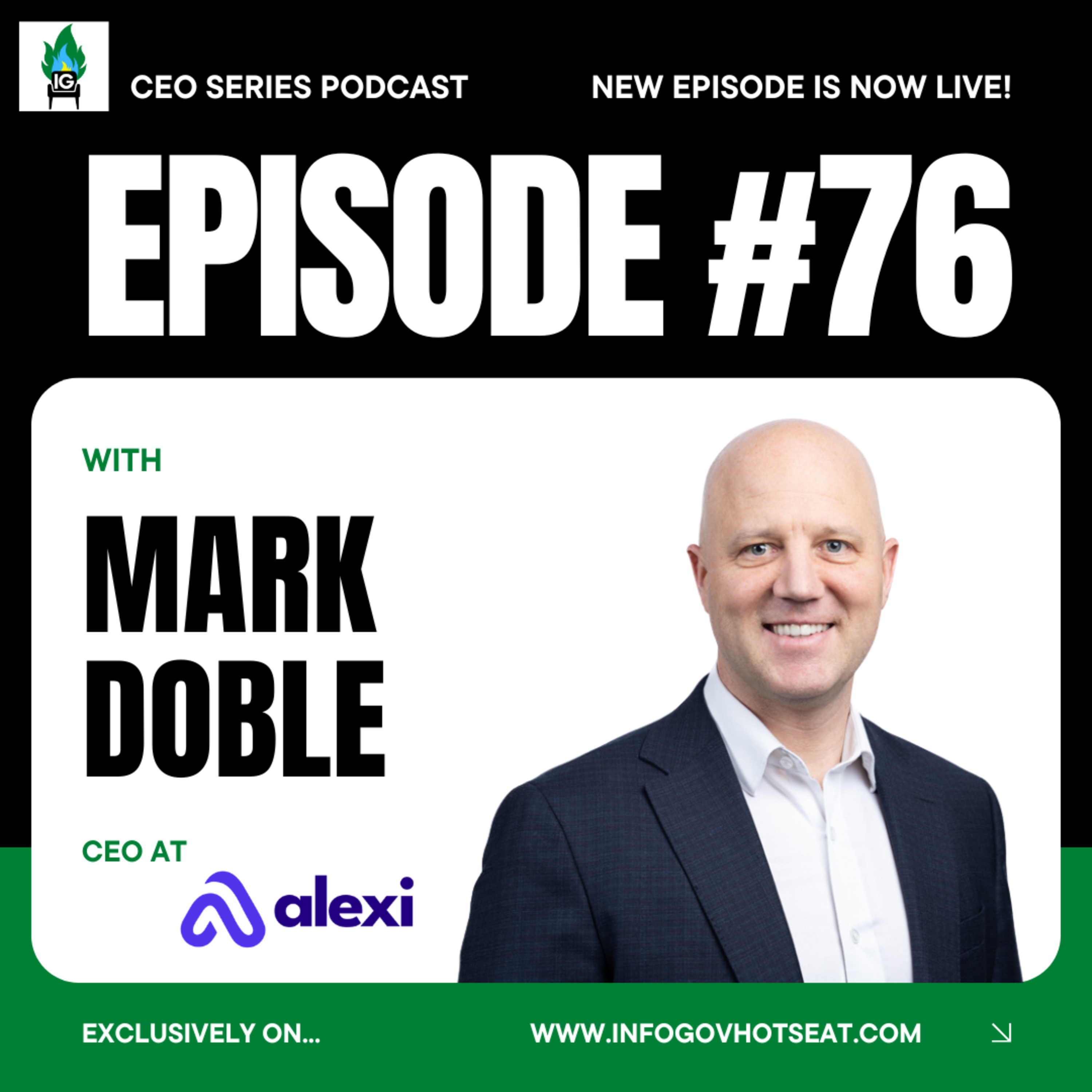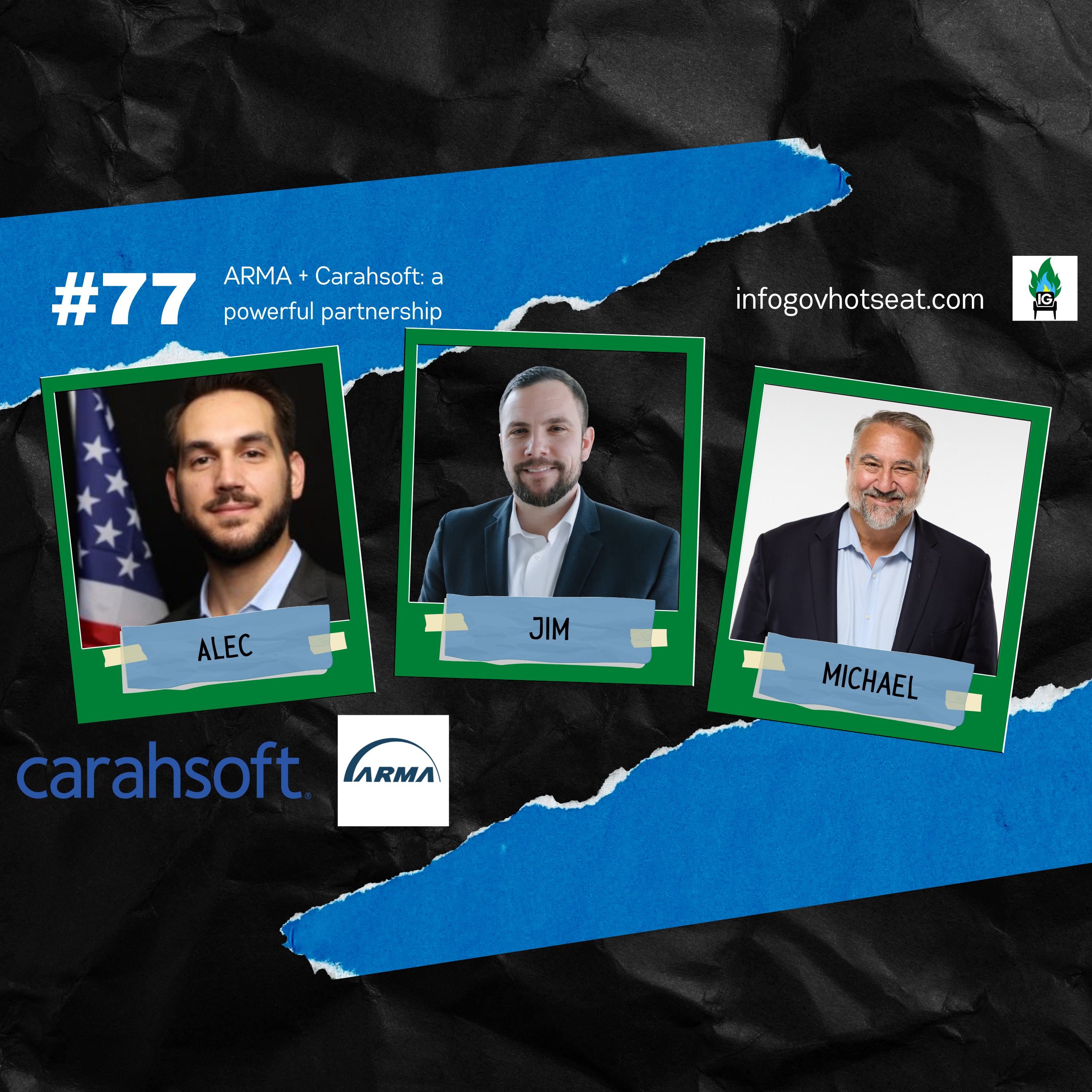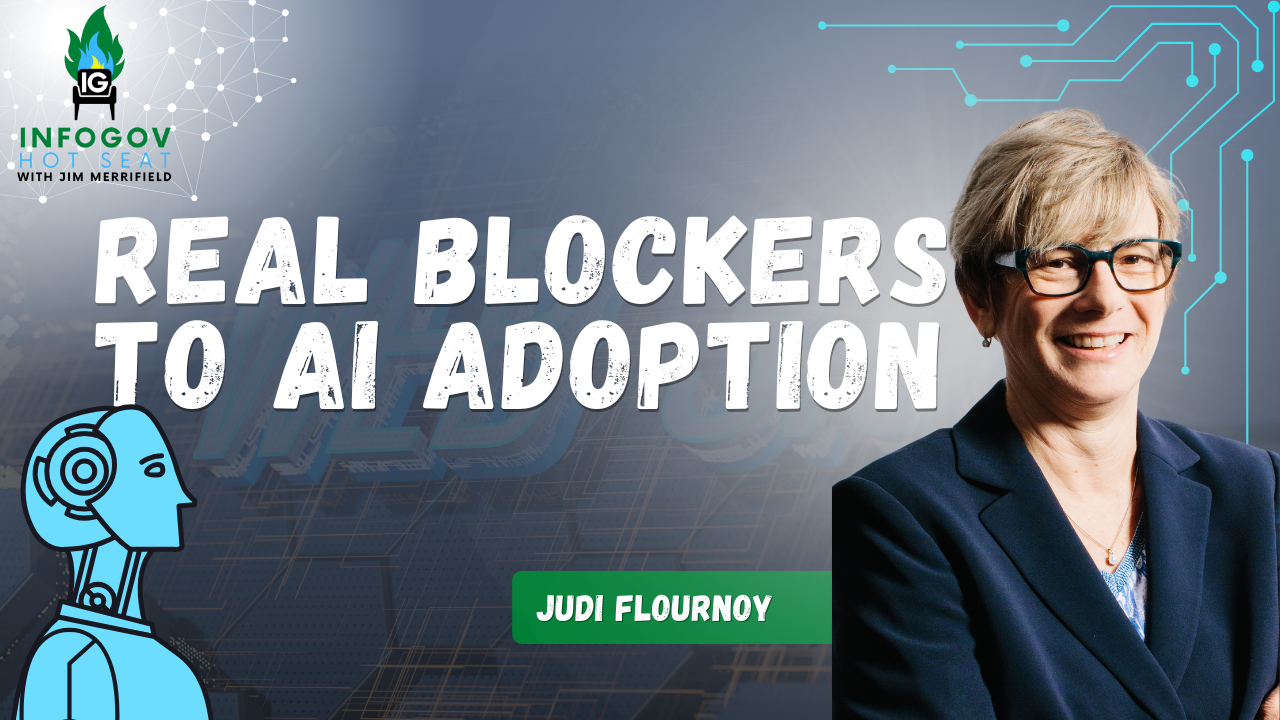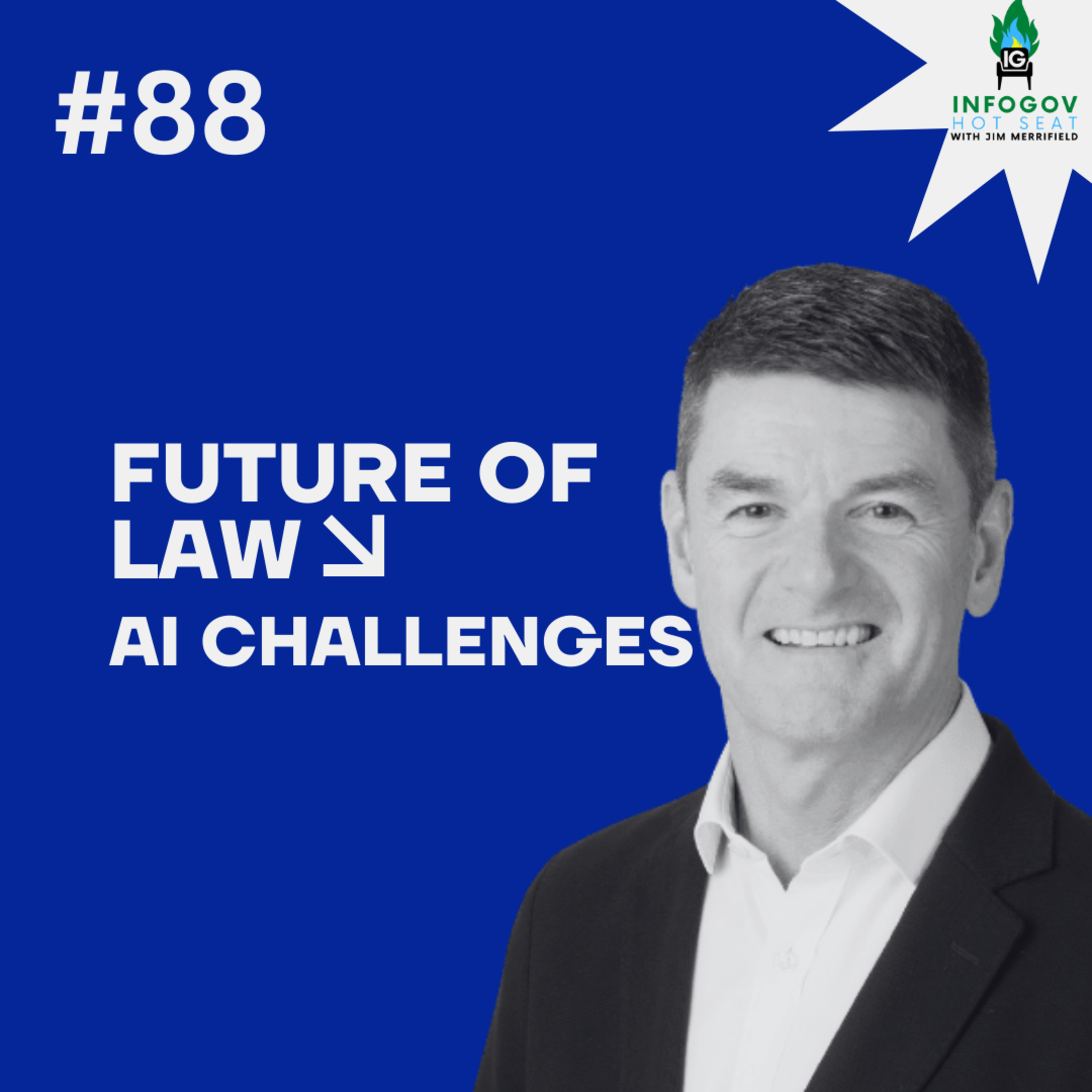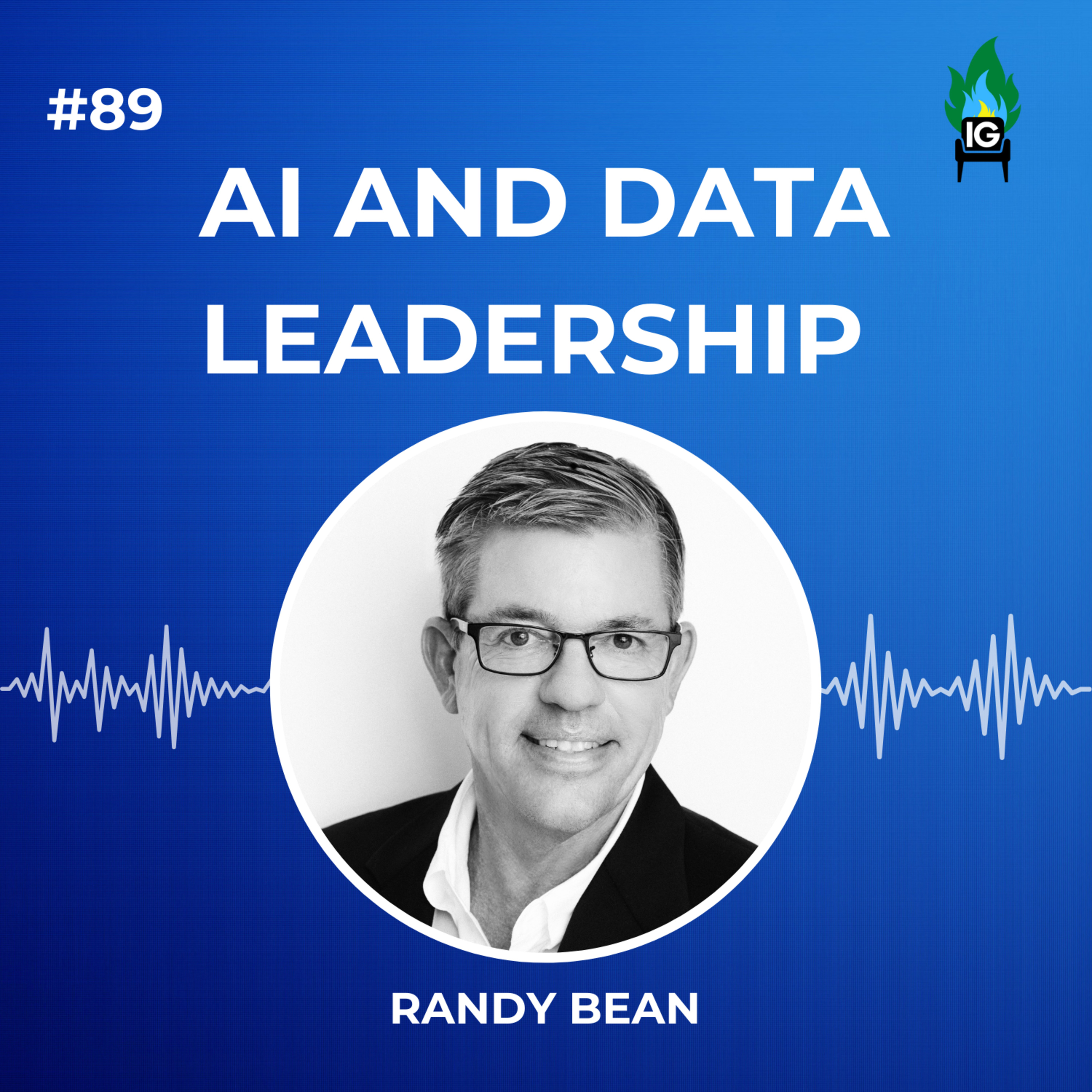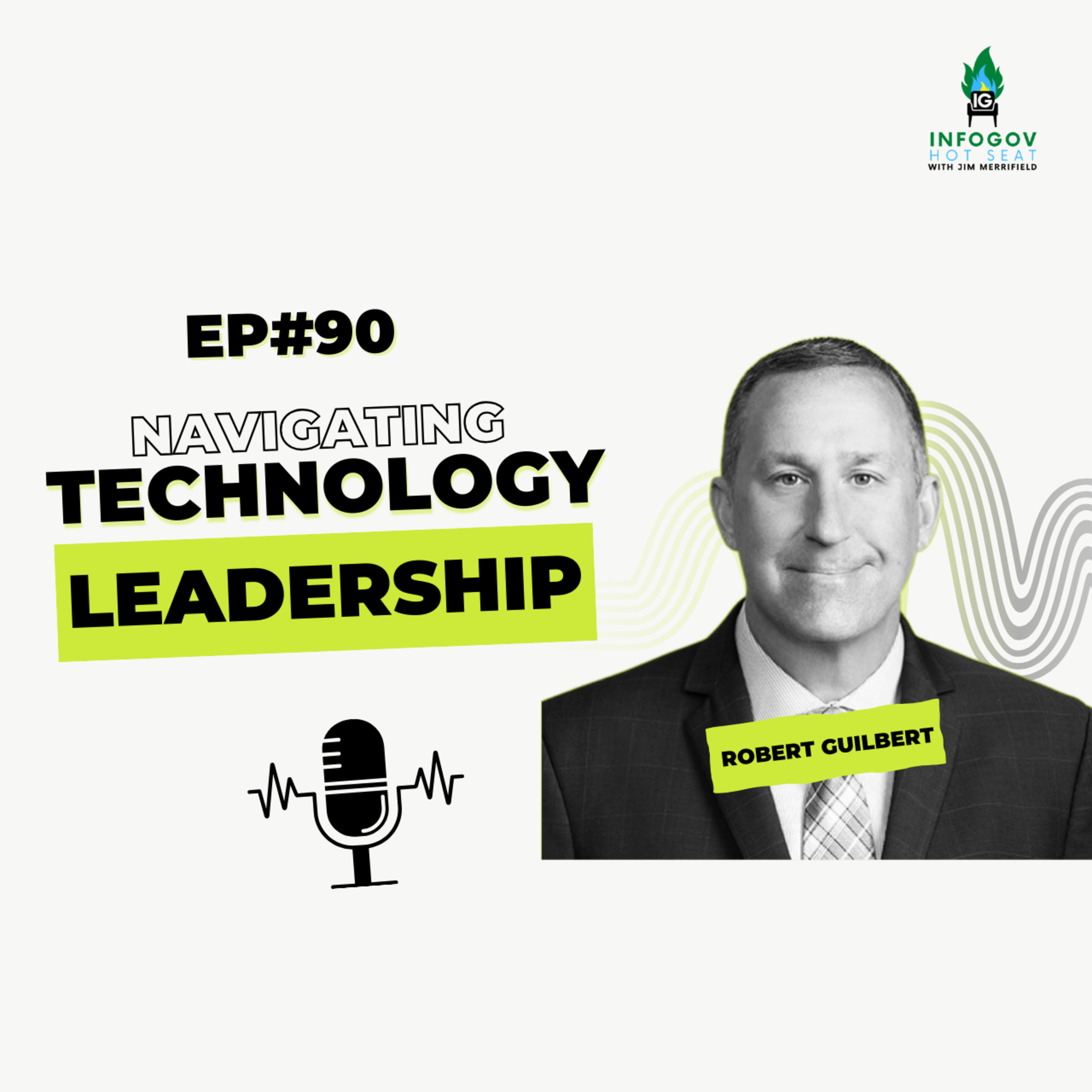Innovating Legal Tech: Private AI Cloud Solutions, Alexi's Story
In this conversation, Jim Merrifield interviews Mark Doble, CEO of Alexi, an AI company focused on the legal sector. Mark shares his journey from law school to founding Alexi, discussing the significant trends in AI adoption within law firms, the importance of humility in leadership, and how customer feedback shapes their innovation. He emphasizes the need for law firms to build proprietary tools and the exciting future of AI in the legal industry.
Jim Merrifield (00:00.756)
Hello and welcome to the InfoGov Hot Seat. I'm your host Jim Merrifield and with me today is Mark Doble, CEO at Alexi. Welcome Mark.
Mark Doble (00:09.742)
Thanks for having me, Jim.
Jim Merrifield (00:11.38)
Yeah, it's great to have you on the hot seat and get to know you a little better and your company as well and what you have going on. Why don't we get to know one another, provide a brief introduction of yourself, your current role, and maybe even one fun fact about yourself.
Mark Doble (00:28.302)
Yeah, sounds great. Yeah, so my name is Mark. I'm founder and CEO at Alexi. We're an AI company in the legal space. It's a platform for law firms to build on and tell you lots more about that. Based in Toronto, sell across Canada and the US. Fun fact about myself.
Recently got into motorcycles, that's my main commuter now to work, which has been a blast. Making sure it's safe, but also have lots of fun doing it too, so.
Jim Merrifield (01:07.562)
That's cool. That's cool. Are you a Blue Jay fan?
Mark Doble (01:10.702)
A little bit. Around playoffs they're doing really well right now so I probably will get into it later in the fall.
Jim Merrifield (01:18.89)
Yeah, for sure. Yeah, they're doing well. So a motorcycle Canadian, a Canadian on a motorcycle. That's awesome. Awesome. Well, welcome. So we're going to let's get to know the company a little bit. I know, Mark, every great company has a story. Can you please share the journey that led to the creation of Alexi and the problem that you set out to solve?
Mark Doble (01:23.682)
Yeah.
Mark Doble (01:46.028)
Yeah, so I went to law school, I come from a sciences philosophy background in my undergrad and got really into building web applications, just building software. Generally the creative freedom that it brought was really exciting to me and I just became completely enthralled with what you could do.
So, and, went to law school, really, really enjoyed my time at law school. Spent about half the time just building fun things on the side. And the other half doing all the readings and getting through law school, which as I said, I really, really enjoyed just being able to read really interesting cases, learning these really interesting things, learning from great professors, tactics, strategies.
And, and, and it really changed me. I would say in, a pretty fundamental way going, going through law school. And I spent about, about a year, just over a year working, in a law firm in litigation. Really enjoyed it, but I was still just the technology side of things and the rate that AI was improving, you know, TensorFlow just come out around that time and OpenAI had just gotten started and some of these early.
large language models and like the 2015, 16 were really impressive and the rate of improvement was just, you just have to forecast a few years and you could see that it was going to be pretty significant. so it was shortly after that 2018 that kind of got started with the company and this is pre-Chat GPT, right? So the foundation models we had at the time were still fairly limited. And then it wasn't until 2020 that we had our first real kind of
meaningful financing round. then, and yeah, there's, there's, we've had lots of ups and downs and great, great years, mediocre years, really difficult times. But we're in, we're in a really great spot now and yeah, with, you know, over 600 law firms across the U S and Canada now as, customers. we, we our growth is just
Mark Doble (04:11.296)
It's just phenomenal right now. Definitely market trends are helping, but there's lots we've had to navigate over the past several years as everyone has, as this technology has exploded in many ways. Yeah, it's been really, really exciting.
Jim Merrifield (04:27.594)
That's awesome. Good for you. It seems like it's been a fun bumpy at times ride, now you're I mean 600 firms. That's that's pretty impressive.
Mark Doble (04:33.388)
Yeah.
Mark Doble (04:38.136)
Thank you. Yeah, it's been really exciting and recently a really big shift up market and now with various things that we did and put in place and how the product has evolved quite a bit working with many larger mid-market, many enterprise level firms that we're really excited about.
Jim Merrifield (05:02.186)
Yeah, that's awesome. Good for you. Well, I know you mentioned trends. I mean, you seem like you're someone at the forefront of the industry. What trends or shifts are you seeing that excite you the most?
Mark Doble (05:17.026)
Yeah, I would say the biggest one actually is around the, it's more of an IT element to how AI is being adopted in law firms. And so we're a huge push we've made is to private deployments, particularly in a private cloud, still within kind of the hyperscalers, the Azure environment that we've committed to a fair degree.
deploying sophisticated AI systems in a private cloud environment for enterprise firms that are completely closed off from the internet. And there's lots of reasons why we believe that this is the right design, the right architecture for these systems, specifically in law firms. One is just like the privacy and security that you get from it is unmatched. You know, in public cloud, multi-tenant SaaS environments, kind of the default
the default assumption is open to everyone and then you have to close it off to get the security level that you need. In private cloud, the reverse is true. The default assumption is it's completely closed off and then you gradually open it up with permitting certain data to leave and certain data to come in as appropriate and have strict controls around that. That's just a far better posture to be default closed than we think is necessary. But I think
perhaps more importantly than that, although privacy and security are very important, we believe very strongly in this kind of Andrej Karpathy's third wave of software development where now you're natural language, now you're writing software using natural language. And a great example of this is building workflows, right? Being able to chain together dozens of prompts, potentially hundreds of thousands of prompts to break down these very complex tasks that take place in a law firm.
and get the right scope, the right context for a particular prompt to solve a particular part of the problem, and then combine all of these into being able to automate really complex things and get really high quality work as an output. This is clearly here to stay. And I think these workflows, these are now more and more becoming
Mark Doble (07:42.264)
clearly AI assets. These are assets that belong to a firm that firms can build these assets and invest in building up these assets to automate certain tasks within their firm. I think truly now for the first time we're seeing the potential for law firms to invest in technology through these workflows. Workflow is just being one example. There's specific data sets, there's evals, there's even models, being able to fine tune certain models or train certain models to
you know, to help with some of these workflows and use cases. I think all of this is going to become more and more widely available. There's going to be more and more competence within law firms to how to build out these assets. And I don't think that these assets living in a multi-tenant public SaaS environment is just completely untenable. They have to stay.
private if they're to stay proprietary. And I don't believe the future of AI is every law firm is licensing the same AI software. Rather, it's law firms licensing the tools that are needed to build the assets that power their firm. And I think this is a very different approach than we've seen over the past couple of years, but I think it's emerging more and more. I think it's really exciting. think AI is not, in fact,
going to be this democratizing force, but it's really going to give the best law firms that invest in their AI stack a competitive advantage in the market.
Jim Merrifield (09:16.82)
Yeah, I completely agree with you. And the closed model seems to be the trend these days. It wasn't the case, you know, a couple of years ago. I don't think there was many closed models. If, if, if any at all, think a lot of, you know, software companies, kind of pivoted to that, to that model because of, you know, how do you take advantage of your, your IP in a secure way without it being private, right? It's kind of tough to do. So, yeah, so awesome. And I could see your excitement.
Mark Doble (09:24.12)
Right.
Mark Doble (09:27.938)
Right.
Mark Doble (09:39.448)
Right? Exactly. Yeah.
Jim Merrifield (09:46.155)
I can see it in your face and expressions. This is an exciting time to be in our industry. So that's great. So leading a company like Alexi, Mark, must come with, I mean, there's a lot of excitement, but it must come with challenges. How do you personally approach leadership and what's your secret to building a strong, innovative team?
Mark Doble (10:11.182)
yeah. well, one thing I talk a lot about, in our company is the importance of, of humility. But, but I think, I think to really understand there's so much that goes into that. It can, it sounds very trite. It sounds like, great. Yeah. Lots of, of humility, be humble. But I think really the way, the way we, it's important for a bunch of reasons that we can go down a big rabbit hole on this.
I if you want, but I can give you kind of the quick version of it. Like we strongly believe that like we're a tech company, we have to innovate if we're going to succeed. And we strongly believe that innovation is the process of taking contrarian ideas and making them conventional. And it's through that process that the innovation happens. And once it's conventional, that's when the innovation has happened.
But the best ideas, they start out looking very contrarian. And it's not just a great idea that nobody else has had. It's often an idea that lots of people have had, but most people think is wrong. And the challenge of innovation is to make this conventional idea that is actually right, that there's something fundamentally true about this contrarian idea and making it conventional. And so the...
challenge in our company is how do we generate as many contrarian but true ideas as possible? And that requires, I strongly believe, high levels of humility for people to recognize that, the most innovative ideas, they're gonna be contrarian. And so for us to even take a contrarian idea seriously, we have to be open-minded. We have to recognize that we're often wrong. And...
and be able to evaluate ideas that sound completely dumb, but look at them closely and see how they might be right. And so that's really important. I also believe strongly in deliberation, not necessarily debate, but use deliberation appropriately for us to arrive at better decisions. And for us, all of us individually, I think are more wrong than we are right, but together in the right team, you can be more right than you are wrong.
Mark Doble (12:31.37)
but only if you have the right process of deliberation to arrive at good decisions together. And that requires you to really, if somebody presents an argument that might be more compelling or some data that convinces you to change your mind on something, you have to be willing to concede right away. And again, this requires very high levels of humility to be able to do this, but I think it's integral to a good decision-making process.
There's a lot more I could say about this, but I think in order for us to operate really well as a company, just humility is a really important trait that we look for, that we recruit for, but then we also try and cultivate through the company culture. yeah, yeah.
Jim Merrifield (13:13.478)
I love it. Now, hey, it's not every day that you talk to a CEO of a AI tech company, a legal tech company that talks about their most highly desirable qualities, his humility. So kudos to you. I'm sure you're a great boss to work for.
Mark Doble (13:31.182)
I appreciate it. maybe if I could just say one more thing about it too, just on that point. Our definition of humility is just like the capacity to be humiliated. so when you have high levels of humility, you can put yourself out there more, you take risks more. But I also think when you expose your ideas to scrutiny, which you only can do if you've got high levels of humility,
Jim Merrifield (13:46.026)
I like that.
Mark Doble (13:58.144)
Only then can you build conviction. And so I do think it seems very counterintuitive, but when you have high levels of humility, you also have higher levels of conviction in your ideas, but you're willing to change your mind if better evidence comes, if better arguments come. And so it's not that we're a bunch of meek, self-deprecating, not confident team. We're very confident, but it comes from a place of humility. Yeah.
Jim Merrifield (14:25.524)
No, right on. So we talked about your vision, your team. Let's talk a little bit about your customers. So your customers are obviously at the heart of your success. Can you share maybe a story or example of how customer feedback shaped your product or strategy?
Mark Doble (14:48.288)
Yeah. customer feedback is very important for us. But if I could go back to like our definition of innovation and first of all, the recognition that we have to innovate. Most customer ideas for products, I think, lead people in the wrong path. They're not contrarian ideas.
And it's very difficult for people who've been working inside of a law firm for a long period of time to have truly contrarian ideas. And a lot of people think that an idea might be contrarian when it's not, because a lot of people think that innovative idea is a good idea, but truly innovative ideas prior to the innovation, I think, sound like really bad ideas. And believing this to be true, we are very careful with how we
take into account feedback from customers. also another way I've heard this put is, if you ask somebody why they bought a super fancy sports car, right, they're never gonna give you the real reason. They'll tell you about how it feels, the acceleration and turning corners and like the power and everything and the engineering behind it. But that's not...
I think that that's probably not the real reason why they bought the car and driving the car. so all of these things we have to keep in mind and instead look at data. What's bringing people back? Look at data and try and find the proxies of value and optimize the product and how you're building the product towards increasing value for the user. And you have to be able to measure it quantitatively. Is there value here?
Does this demonstrate value? Does this represent value for the user and for the customer? That being said, there's amazing, building out private cloud, developing our private cloud implementation at our architecture only came as a result of close collaboration with one of the largest law firms in the world and really trying to solve the key problems that they were facing with data, privacy, security.
Mark Doble (17:06.594)
but also wanting to invest in their AI tools and their AI assets and how to do that. There wasn't really an environment and a tool out there that was permitting them to do that. so getting it right, getting the details right, the initial idea, yes, is still, I think, somewhat contrarian, which is why many of the big providers are still not even providing a private cloud solution. But it took an innovative customer.
and us working with them closely to understand the particular problem and to come up with this design, this architecture design that we think is truly world class for how you should deliver and deploy an AI system as a true platform for a law firm.
Jim Merrifield (17:53.343)
Yeah, that's great. I mean, the firm or the customer has to see value. But I think going back to your car illustration, I think people, probably a husband or buys a car because their wife told them to buy the car. But anyway, no, not the same with the customer. no, I think you made some great points there. we talked about the vision. We talked about the team, talked about the customer. What's next for Alexi?
Mark Doble (18:06.21)
That's true. That's true.
Jim Merrifield (18:22.826)
You got any projects that are coming out soon, any goals, any milestones that you're looking forward to hit in the rest of 2025?
Mark Doble (18:33.762)
Yeah, so just we're continuing to expand this private cloud and we've got a dozen or so implementations with large firms lined up right now. This is just going to continue to accelerate. think a lot of people, especially in the US and Canada, were much more well known, but in the US, we're still kind of in the shadow of larger names like
Harvey and these other providers. I think proving to the market that our method of implementation, the quality of the technology that we built and that we're continuing to build, think is, yeah, just making sure that we're taken as seriously as we should. I think that would be a great point when we feel confident that we're, okay, we're
People are naming Harvey, us, Legora others that we think are doing amazing work. They're doing great work. But it's about time for firms, I think, to be taking us seriously in that same category.
Jim Merrifield (19:48.415)
Yeah, listen, Suits 2.0 didn't go so well. So, but no, there's, there's, know, Harvey's got plenty of competition these days out there. So kudos to you and the rest of the space. So I know, Mark, we talked about a lot here. Anything else you wanted to share with our audience before we let you go?
Mark Doble (19:51.587)
Ha
Mark Doble (19:58.498)
Yeah. Yeah.
Mark Doble (20:10.478)
No, this has been great. I love it. I think maybe just hammer home the main point that now truly law firms can build really compelling tools, software, and we're seeing these personas within law firms. used to be lawyers interested in the technology, or still are lawyers, but now actively mapping out workflows, building
automation around these workflows. think we're going to see this role emerge more and more, and they're going to provide real proprietary value to the law firm in building up these automations. And I think what's really key though is making sure that you have the system implemented, deployed in the right way, that it remains proprietary and it's not just a third party company that's learning from all the workflows that all the firms are building and then now packaging it up and selling it to everyone. So, yeah.
Thank you. Thanks a lot for having me.
Jim Merrifield (21:11.324)
Absolutely. No, thanks for being a guest. I think there's lots of exciting, exciting times ahead in the world of AI. I think lawyers, I law firms, I think are at the head of this because I think lawyers are great at asking questions, right? So it comes templates and things like that. So, but to you all, mean, obviously software providers like yourself can give us, you know, us, our law firms, the best software tools out there, but it's up to us to actually use the.
Mark Doble (21:26.734)
Exactly. Yeah. Yeah.
Jim Merrifield (21:41.438)
to use the software and take advantage of it. So we'll see what happens in the days ahead. And again, thanks, Mark, for joining me today. Thanks to our audience for joining us on the InfoGov Hot Seat. If you'd like to be a guest like Mark here, all you have to do is submit your information through our website, infogovhotseat.com. And thank you so much. Enjoy the rest of your day.
Mark Doble (21:42.008)
Yep.
Mark Doble (22:03.534)
Thanks, Jim.

CEO, Alexi
Mark Doble is the Founder and CEO of Alexi, the legal intelligence platform built to help law firms deploy AI on their own terms. A former lawyer turned entrepreneur, Mark launched Alexi in 2017—well before generative AI became mainstream—to solve real problems inside real legal workflows. Today, he’s one of Canada’s leading voices on applied AI, advocating for secure, firm-specific deployment and pushing the legal industry to build competitive advantage through automation, not hype.









